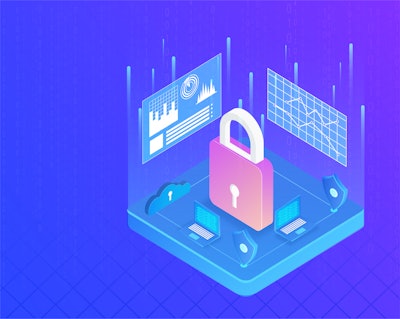
Incidences of cybersecurity attacks are on the rise around the world and the supply chain is a prime target—with the number of data violation cases up 181%, according to data collection company SOAX.
A recent survey of U.S. trucking companies of all sizes found that only about 12% of fleets feel “very prepared” for a cybersecurity breach or ransomware attack.
Breaches come with a hefty price tag. In 2022, the average cost of a data breach was a whopping $9.44 million, according to IBM’s annual Cost of a Data Breach report – and breaches are only getting costlier as hackers become more agile.
Cybersecurity attacks on trucking and logistics companies are not only costly, but they can greatly disrupt the supply chain by preventing essential deliveries of critical products like medical supplies, fuel or livestock feed. There’s also the potential threat of a hacker gaining access to a heavy-duty vehicle with malicious intent and creating a crisis situation.
Since the economy relies on carriers to move goods, trucking and logistics is a prime target for hackers and bad actors looking to make a quick buck and create chaos.
Multiple Entry Points
According to Security Magazine, the transportation industry is one of the most high-value targets for ransomware attacks due to the industry’s increasing digitalization and use of hardware devices for its core operations.
Over the years, the supply chain has become increasingly technological, with higher numbers of potential entry points for hackers and scammers to access a company’s private data.
In the case of trucking, not only are carriers potentially vulnerable to the same threats that most other office-based companies face – phishing emails, ransomware attacks, robocalls, etc. – but are also prone to attacks on our transportation infrastructure that physically moves goods around the country.
Trucks are more and more connected today than ever before, running multiple solutions on one or more devices in the cab, as well as other asset tracking devices and solutions that may be installed on or inside the trailer. Each device and solution are a potential entry point for a cyberattack, forming a chain that is only as strong as its weakest link.
Fleets should initiate due diligence checks with all technology providers they work with to ensure partners are following cybersecurity best practices and pursuing rigorous security certifications, like SOC2 and others.
In Trimble’s survey data, about 65% of fleets reported they or their peers have been victims of a cyberattack.
Fortunately, the trucking industry and government entities are actively working on ways to better protect enterprise and information management systems and connected in-cab devices. The U.S. Department of Commerce is gathering input for potential regulations on connected vehicles and in-cab technologies like cameras and communications and telematics systems as a part of national security protections.
Artificial Intelligence
AI is here to stay, and while it can make certain tasks easier, it also can be wielded by hackers to increase the speed, sophistication and scale of their attacks.
Even so, AI tools can also be revolutionary for monitoring and preventing cybersecurity risks. AI is incredibly proficient at identifying and analyzing global patterns to detect similar attacks and prevent gaps in protection.
For example, Microsoft uses OpenAI to identify threats to its Azure platform, monitoring trillions of threat signals every day. More and more companies are using AI solutions to combat security issues and other threats.
Preventative Measures
There are baseline security measures fleets should consider having in place, such as Multi-Factor Authentication, endpoint detection and response, and cybersecurity awareness training for staff. These measures enable end-users to be aware of cybersecurity best practices, respond to malicious activity with agents on workstations and prevent brute force password attacks.
Cloud-based solutions can also play a part in helping fleets protect their valuable data. They are significantly more scalable, cost-effective, and allow for more streamlined disaster recovery/business continuity in the case of a data breach. Cloud solutions are also better able to leverage integrations, which are critical for security tools along with data feeds to cross-connect products and services.
Additionally, recurring data security audits can be a very effective part of a company’s overall cybersecurity strategy to validate that proper security controls are in place while also providing guidance on any existing gaps. Audits are there to help ensure proper controls are in place to cover the various parts of technology confidentiality, integrity and availability.
Prepare Today
Unfortunately, cybersecurity incidents are becoming more frequent across industries, and transportation companies would benefit from shoring up their efforts to prevent attacks.
In Trimble’s fleet survey, most respondents believed a cybersecurity breach could be resolved within 1-3 days. The reality is that most incidents take much longer, often a matter of weeks: according to a report from Statista, it takes an average of 33 days to complete an attack investigation. Every day a business is down, operations are impacted, trucks aren’t moving, and revenue is lost.
Even after an incident has been addressed, fleets should also consider the reputational cost of a public breach. There is no amount of money that can fix a bad reputation.
Data protection is not a “one-and-done” action; it’s an ongoing process that works best when everyone is involved. Be on the lookout for vulnerabilities in your workflows and be sure to stay on top of best practices and utilize the services available to you. By remaining vigilant and informed, trucking companies can keep their business, customers and fleet safe from exposure and data breaches.














